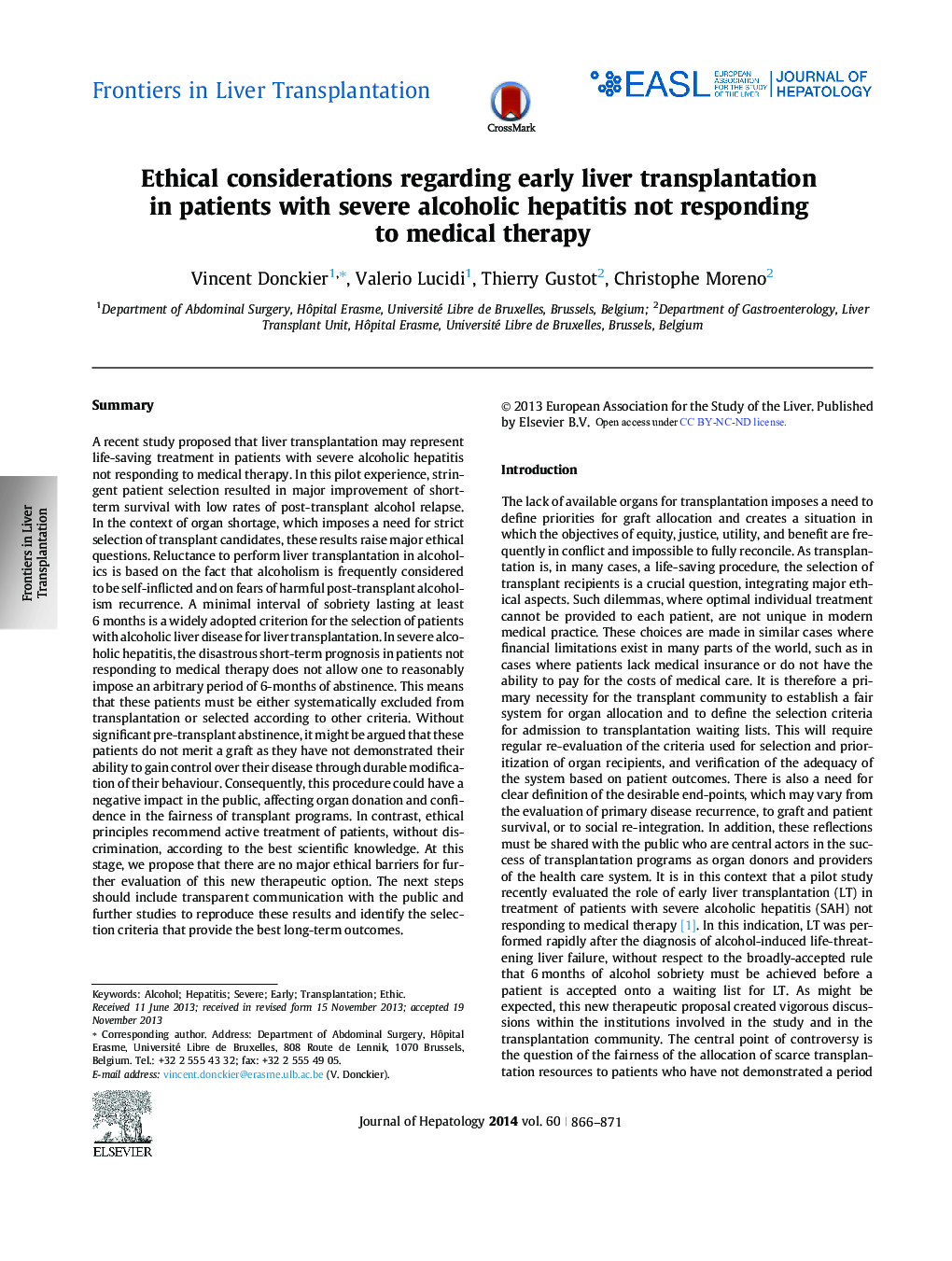| کد مقاله | کد نشریه | سال انتشار | مقاله انگلیسی | نسخه تمام متن |
|---|---|---|---|---|
| 6103723 | 1211131 | 2014 | 6 صفحه PDF | دانلود رایگان |
SummaryA recent study proposed that liver transplantation may represent life-saving treatment in patients with severe alcoholic hepatitis not responding to medical therapy. In this pilot experience, stringent patient selection resulted in major improvement of short-term survival with low rates of post-transplant alcohol relapse. In the context of organ shortage, which imposes a need for strict selection of transplant candidates, these results raise major ethical questions. Reluctance to perform liver transplantation in alcoholics is based on the fact that alcoholism is frequently considered to be self-inflicted and on fears of harmful post-transplant alcoholism recurrence. A minimal interval of sobriety lasting at least 6Â months is a widely adopted criterion for the selection of patients with alcoholic liver disease for liver transplantation. In severe alcoholic hepatitis, the disastrous short-term prognosis in patients not responding to medical therapy does not allow one to reasonably impose an arbitrary period of 6-months of abstinence. This means that these patients must be either systematically excluded from transplantation or selected according to other criteria. Without significant pre-transplant abstinence, it might be argued that these patients do not merit a graft as they have not demonstrated their ability to gain control over their disease through durable modification of their behaviour. Consequently, this procedure could have a negative impact in the public, affecting organ donation and confidence in the fairness of transplant programs. In contrast, ethical principles recommend active treatment of patients, without discrimination, according to the best scientific knowledge. At this stage, we propose that there are no major ethical barriers for further evaluation of this new therapeutic option. The next steps should include transparent communication with the public and further studies to reproduce these results and identify the selection criteria that provide the best long-term outcomes.
Journal: Journal of Hepatology - Volume 60, Issue 4, April 2014, Pages 866-871
